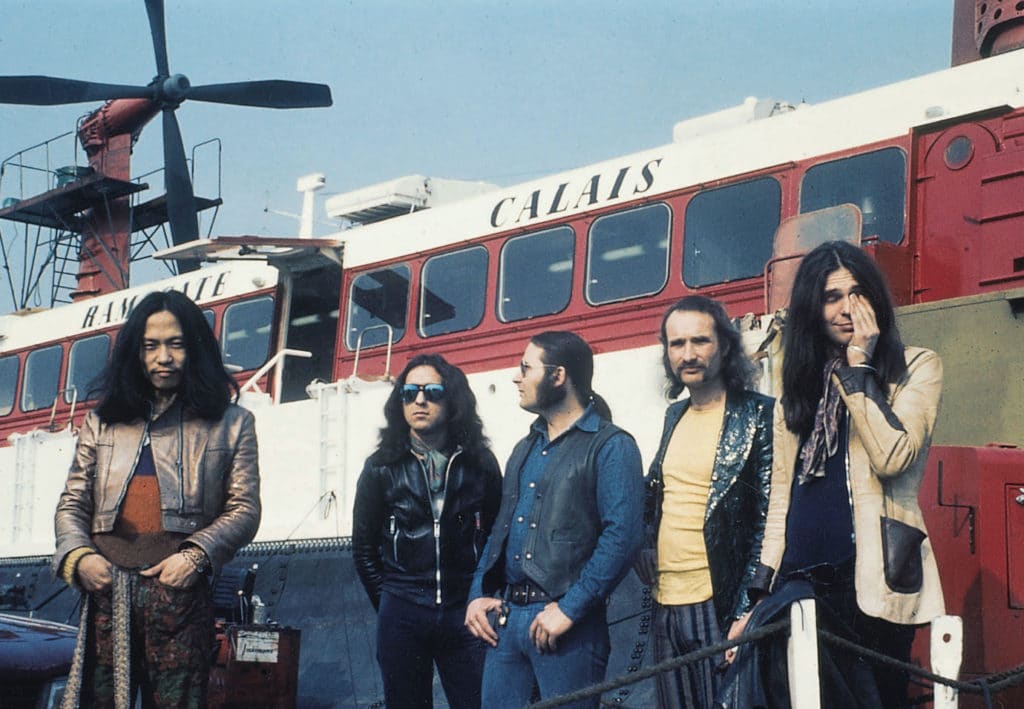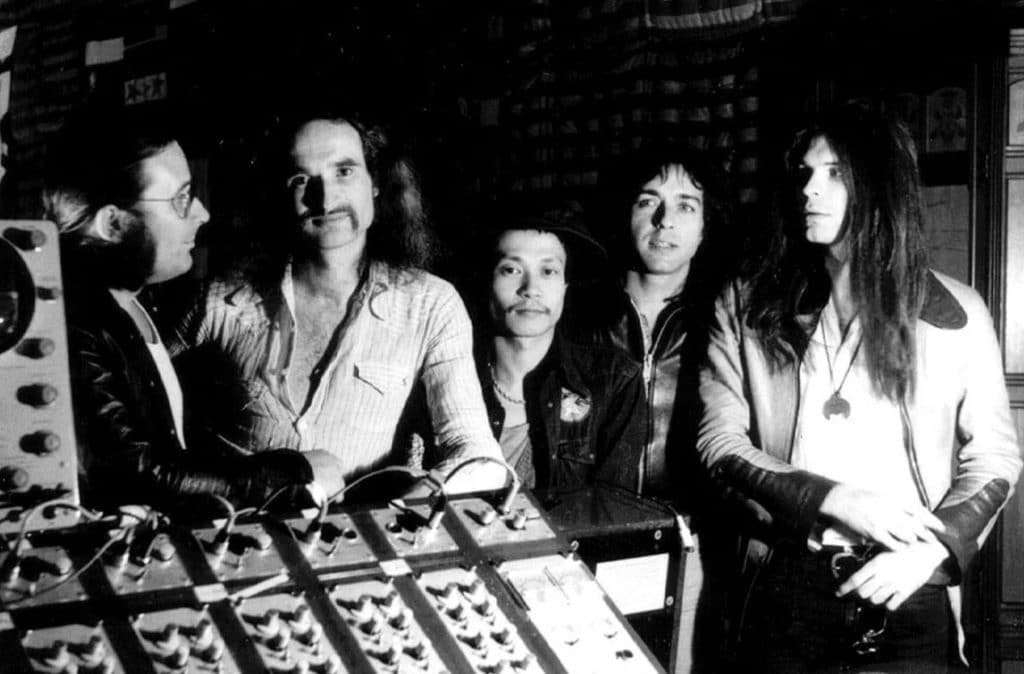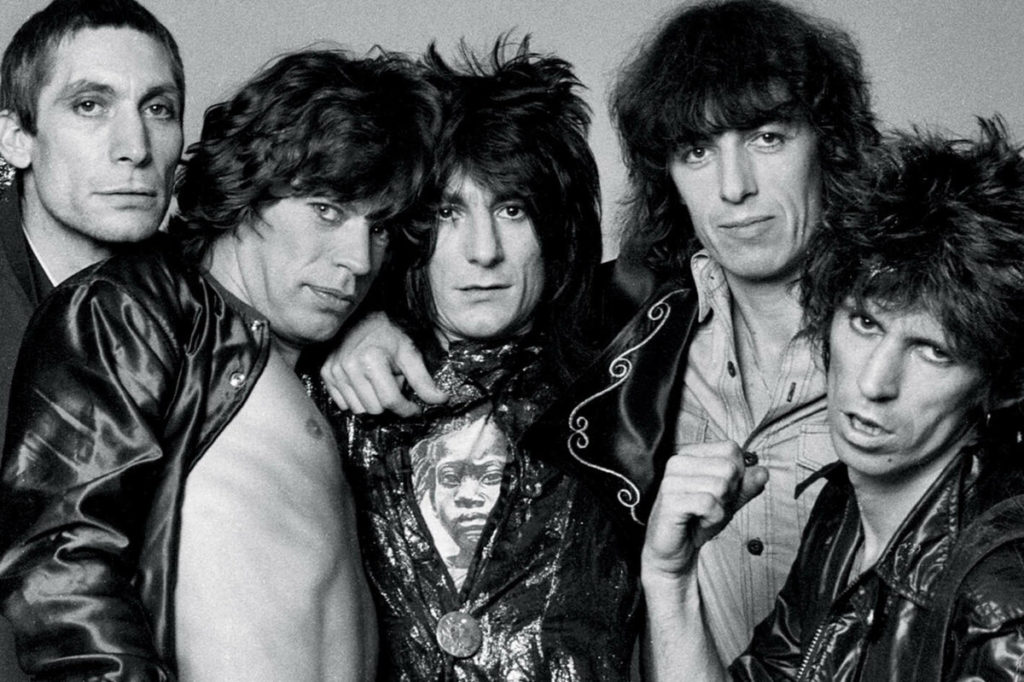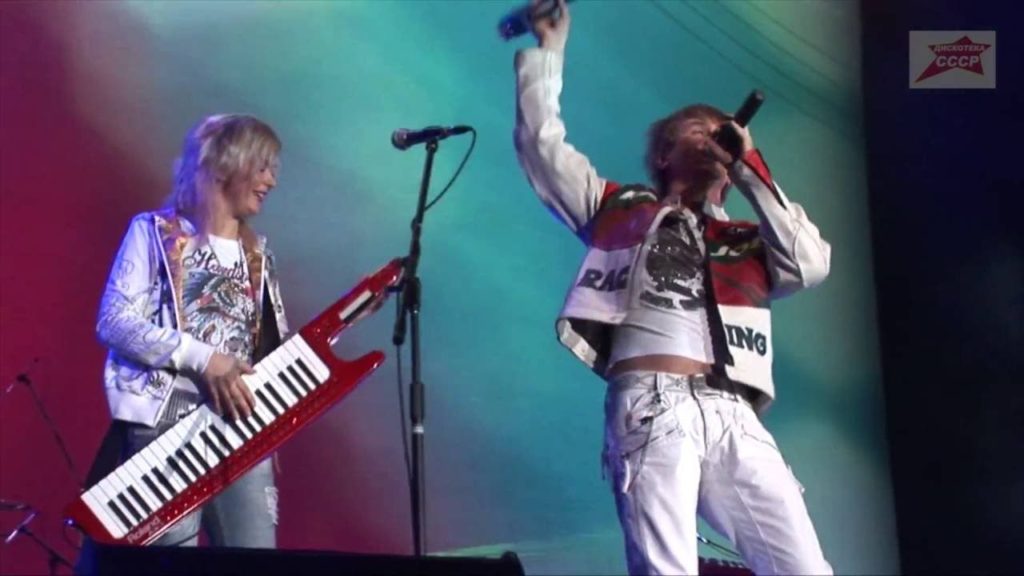Initial composition:
Holger Shukai - bass guitar
Irmin Schmidt - keyboards
Michael Karoli - guitar
David Johnson - composer, flute, electronics
The Can group was formed in Cologne in 1968, and in June the group made a recording during the group's performance at an art exhibition. Then vocalist Manny Lee was invited.
The music was filled with improvisation, and the disc released later was called Prehistoric future.
In the same year, a very talented, but very complex American artist, Malcolm Mooney, joined the group. Together with him, compositions were created for the disc Prepared to Meet Thy Pnoom, which was not accepted by the recording studio.
Two songs from this album were recorded in 1969 and were included in the Monster Movie track collection. And the rest of the works were released only in 1981 and were called Delay 1968.
Malcolm Mooney's bizarre rhetoric added more quirkiness and hypnotism to the melodies, which were influenced by funk, garage and psychedelic rock.
The main thing in the compositions of the Can group was the rhythm section, which consisted of bass guitar and drums, and Liebetzeit (one of the phenomenal rock drummers) was the leader in their creative impulse.
After some time, Muni left for America, and instead Kenji Suzuki, who came from Japan, who traveled around Europe as a street musician, entered the group.
His performance was seen by the members of the group and invited to his place, although he had no musical education. That same evening, he sang at a Can concert. The first disc with his vocals was called Soundtracks (1970).
The heyday of the group's work: 1971-1973
During this time, the group created their most famous hits, which played a big role in shaping the direction of kraut rock music.
The musical style of the group has also changed, now it has become changeable and improvisational. A double album recorded in 1971, Tago Mago is considered very innovative and unconventional.

The basis of the music was rhythmic, jazz-like percussion, improvisation on the guitar, solo on the keys and Suzuki's unusual voice.
In 1972, a rather avant-garde Ege Bamyasi disc was released, recorded in the only open recording studio Inner Space. This was followed in 1973 by the ambient CD Future Days, which became one of the most successful.
And after some time, Suzuki got married and went to the Jehovah's Witnesses sect, leaving the Can group. Now Karoli and Schmidt became vocalists, but now the number of voices in the group's compositions has decreased, and experiments with ambient continued.
Group's decline: 1974-1979
In 1974, the album Soon Over Babaluma was recorded in the same genre. In 1975 the band began working with the English record company Virgin Records and the German EMI/Harvest.
At the same time, Landed was recorded, and in 1976 - the Flow Motion disc, which already sounded more classical and better. And the song I Want More from Flow Motion was the only record that became a hit outside of Germany and took 26th place in the English charts.

The following year, the band included Traffic Roscoe G (bass) and Rebop Kwaku Baah (percussion), who also became vocalists on the albums Saw Delight, Out of Reach and Can.
Then Shukai almost did not take part in the work of the team due to the fact that Schmidt's wife interfered in their work.
He left the group at the end of 1977. After 1979, Can disbanded, although the members occasionally worked together on solo programs.
After the breakup of the group: 1980 and following years
After the collapse of the team, its members were involved in various projects, very often as session players.
In 1986, a reunion took place and a sound recording was made under the name Rite Time, where Malcolm Mooney was the vocalist. The album was released only in 1989.
Then the musicians dispersed again. Once again they gathered in 1991 to record music, for the film "When the World Ends", after which a significant number of collections of various compositions and concert performances were released.
In 1999, the musicians from the main line-up (Karoli, Schmidt, Liebetzeit, Shukai) played at one concert, but separately, because everyone already had a solo project.
In the fall of 2001, Michael Caroli died, who had been ill with cancer for a long time. Since 2004, re-releases of past albums on CDs have begun.

Holger Shukai has released solo projects in the ambient genre. Yaki Liebetzeit has played as a recording drummer with a lot of bands.
Michael Karoli also worked as a session guitarist, and also released a solo project in which Polly Eltes sang, and in 1999 he formed the group Sofortkontakt!
Irmin Schmidt worked with drummer Martin Atkins and produced for various bands.
Suzuki decided to take up music again in 1983 and participated in performances in many countries along with various musicians, occasionally recording live performances.
Malcolm Mooney left for America in 1969 and became an artist again, but in 1998 he was a vocalist in the Tenth Planet band.
Bass guitarist Rosco Gee has been playing in a band on Harald Schmidt's TV show since 1995. Ribop Kwaku Baah died of a cerebral hemorrhage in 1983.



